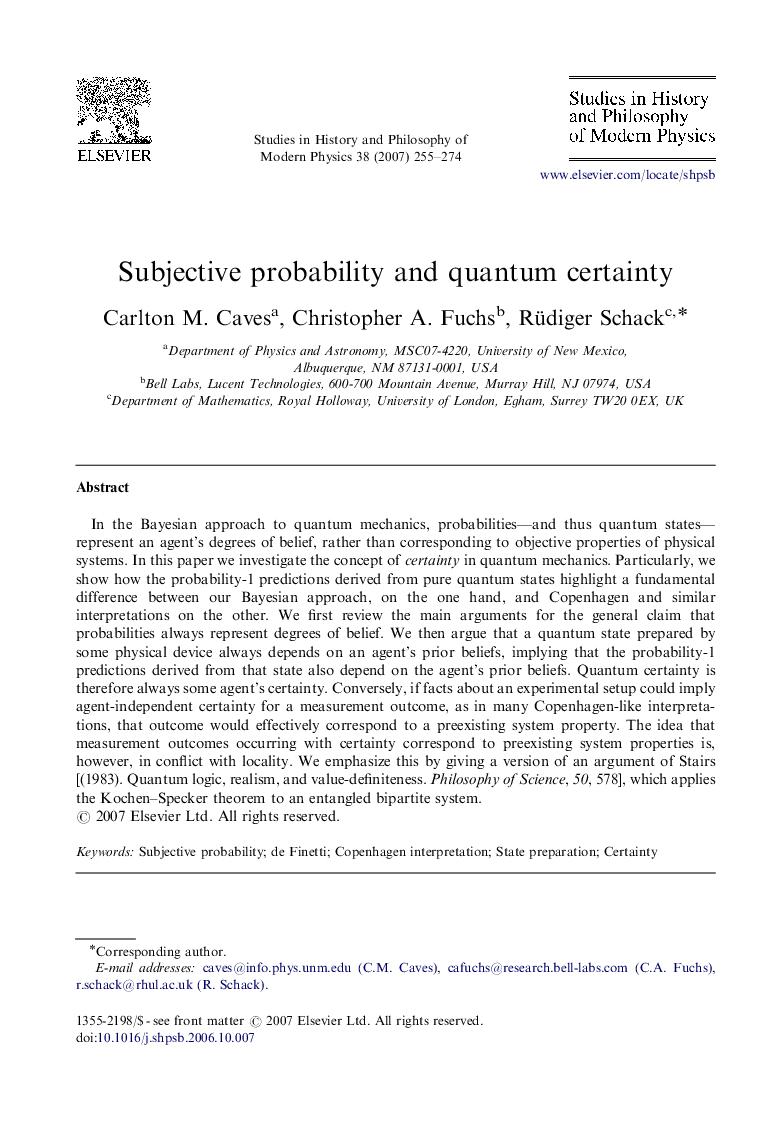| Article ID | Journal | Published Year | Pages | File Type |
|---|---|---|---|---|
| 1161788 | Studies in History and Philosophy of Science Part B: Studies in History and Philosophy of Modern Physics | 2007 | 20 Pages |
In the Bayesian approach to quantum mechanics, probabilities—and thus quantum states—represent an agent's degrees of belief, rather than corresponding to objective properties of physical systems. In this paper we investigate the concept of certainty in quantum mechanics. Particularly, we show how the probability-1 predictions derived from pure quantum states highlight a fundamental difference between our Bayesian approach, on the one hand, and Copenhagen and similar interpretations on the other. We first review the main arguments for the general claim that probabilities always represent degrees of belief. We then argue that a quantum state prepared by some physical device always depends on an agent's prior beliefs, implying that the probability-1 predictions derived from that state also depend on the agent's prior beliefs. Quantum certainty is therefore always some agent's certainty. Conversely, if facts about an experimental setup could imply agent-independent certainty for a measurement outcome, as in many Copenhagen-like interpretations, that outcome would effectively correspond to a preexisting system property. The idea that measurement outcomes occurring with certainty correspond to preexisting system properties is, however, in conflict with locality. We emphasize this by giving a version of an argument of Stairs [(1983). Quantum logic, realism, and value-definiteness. Philosophy of Science, 50, 578], which applies the Kochen–Specker theorem to an entangled bipartite system.
